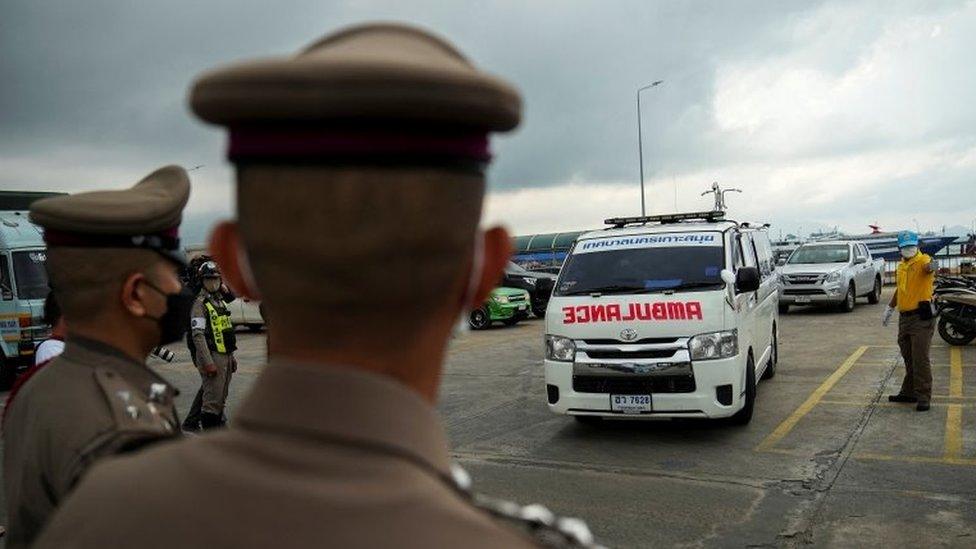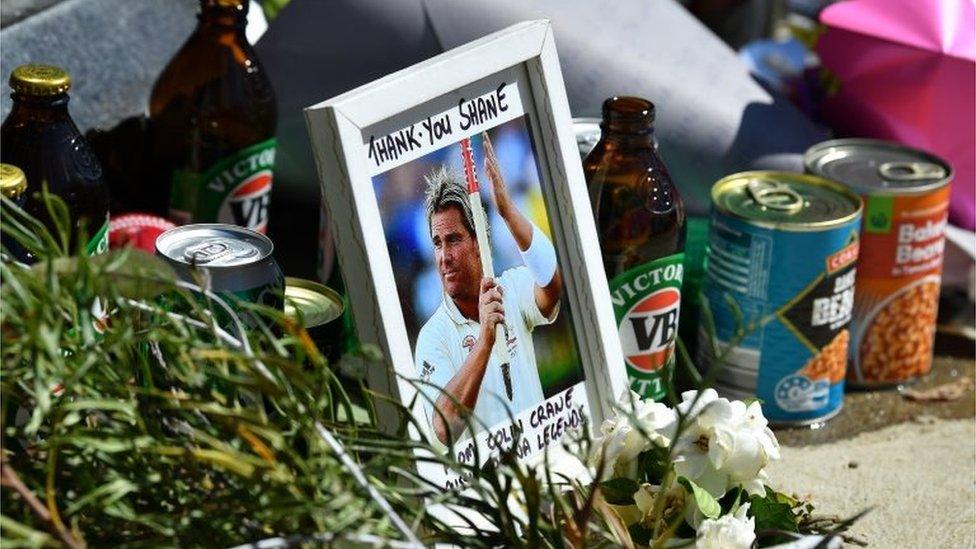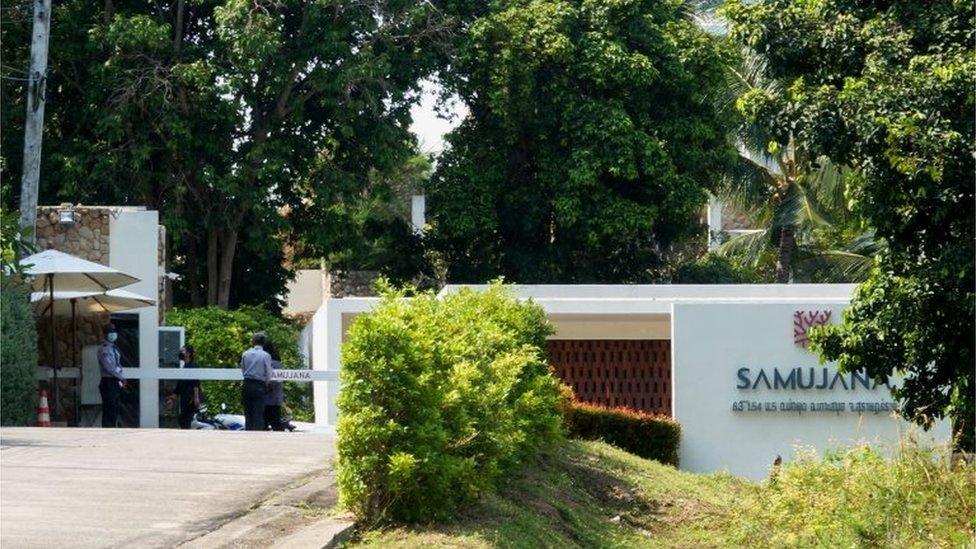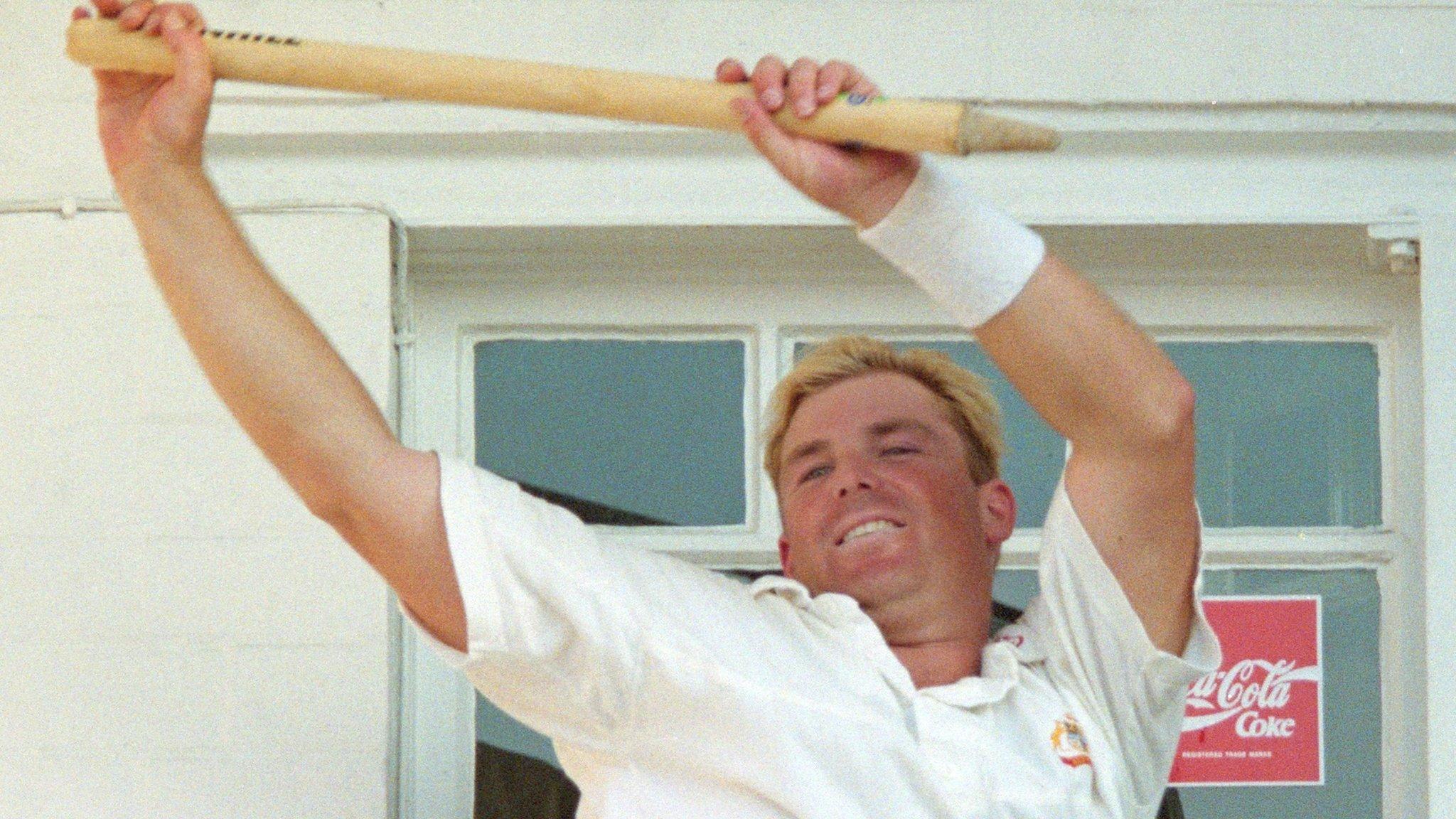Shane Warne: Australian cricket legend died from natural causes - police
- Published

Shane Warne's body is being transported from Thailand back to Australia
Australian cricket legend Shane Warne's death in Thailand on Friday was from natural causes, police have confirmed.
A senior Thai police official said the post mortem exam showed no signs of foul play in the 52-year-old's death.
Warne, who is considered to be one of the greatest cricketers of all time, died of a suspected heart attack on Koh Samui island, where he was holidaying.
The Australian government is bringing his body back to Australia where he will be given a state funeral.
Warne was a larger-than-life figure whose fame transcended sport and he inspired generations of fans.

There have been tributes like this one in Melbourne left for Warne on Koh Samui too
He was found unresponsive at the Thai villa where he was staying with friends. Attempts to revive him in hospital were unsuccessful.
The post mortem exam showed Warne died of a "congenital disease", Songyot Chayaninporamet, deputy director of Samui Hospital, told a news conference, Reuters news agency reported.
"There is no Covid-19 infection and no sign of assault or murder."
Thailand's deputy police spokesman Krissana Pattanacharoen said in a statement: "Investigators received an autopsy report today in which a forensic doctor concludes the death was due to natural causes."
He said the player's family had been informed and accepted the findings. Warne is survived by his three children with former wife Simone Callahan.

Shane Warne was found unconscious in his room at this luxury villa on Koh Samui
The death of one of Australia's favourite sons has shocked the country, and brought a flood of tributes from cricket fans and others around the world.
Warne's family have made their first comments following his sudden death, external, with his parents, children, ex-wife and brother saying how much they missed him.
"To find words to adequately express our sadness is an impossible task for us, and looking to a future without Shane is inconceivable," parents Keith and Brigitte said in a statement.
"I wish I could've hugged you tighter in what I didn't know were my final moments with you," his daughter Summer said.
Police say Warne's body will be flown to Australia on Tuesday.
Security concerns were raised when a German woman carrying flowers managed to climb into the back of the ambulance , external taking the cricketer's body off Koh Samui. Thai police questioned her and later described her as a "fan who wanted to pay her respects and sincerity" to Warne.
Warne's mastery of leg-spin - a style of bowling that declined during the 1970s and 1980s when fast bowlers dominated - revolutionised cricket.
He took 708 Test wickets, the second most of all time, in 145 matches across a stellar 15-year international career.
Shane Warne bowls Mike Gatting with the 'ball of the century' in 1993 Ashes
Warne helped Australia win the 1999 50-over World Cup.
In 2000, he was named one of the five Wisden cricketers of the century, alongside Sir Donald Bradman, Sir Garfield Sobers, Sir Jack Hobbs and Sir Viv Richards.
He retired from international cricket in 2007, going on to a career as a commentator, pundit and coach.
- Published5 March 2022

- Attribution
- Published6 March 2022

- Attribution
- Published4 March 2022

- Attribution
- Published4 March 2022

- Attribution
- Published4 March 2022
